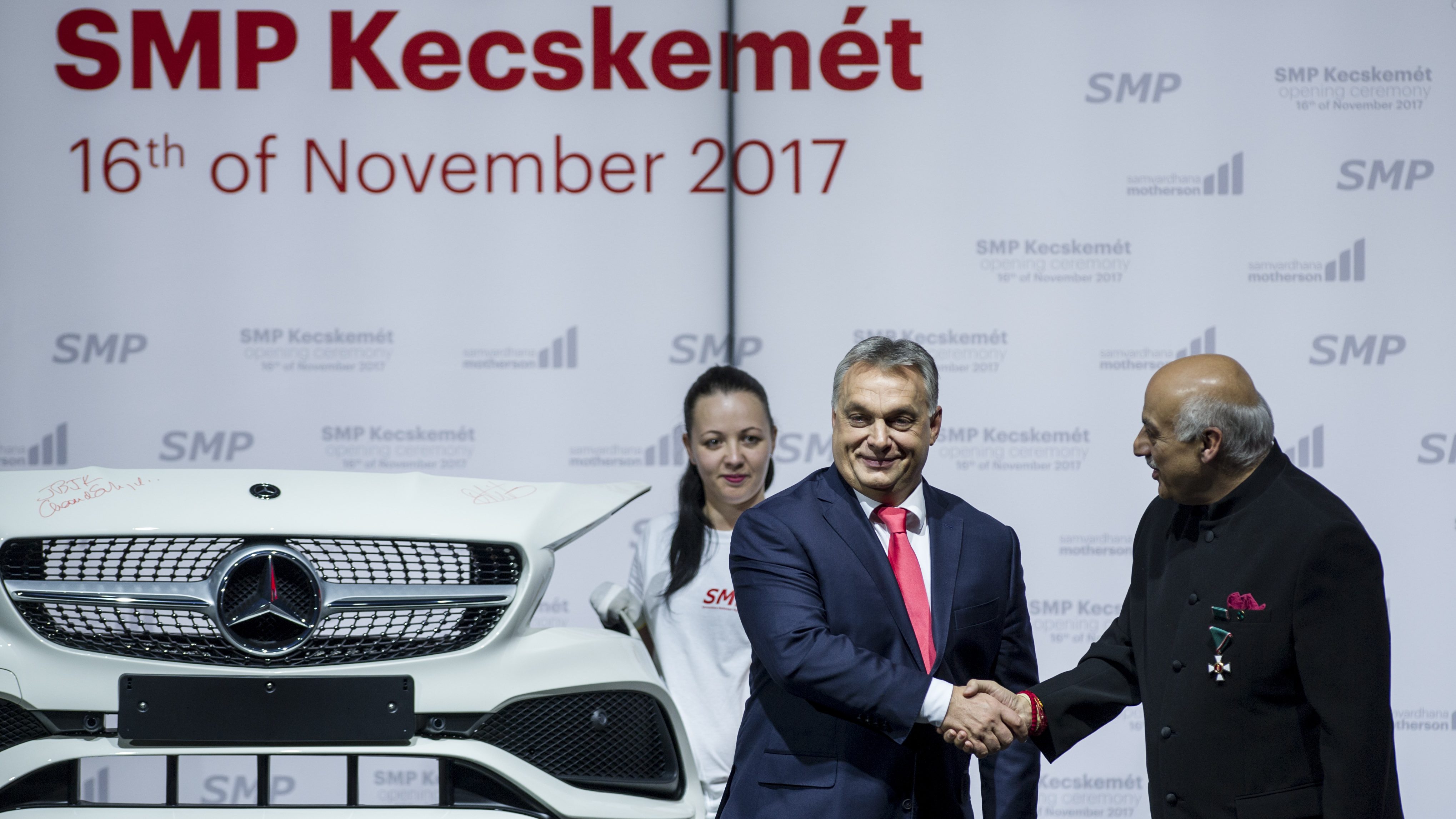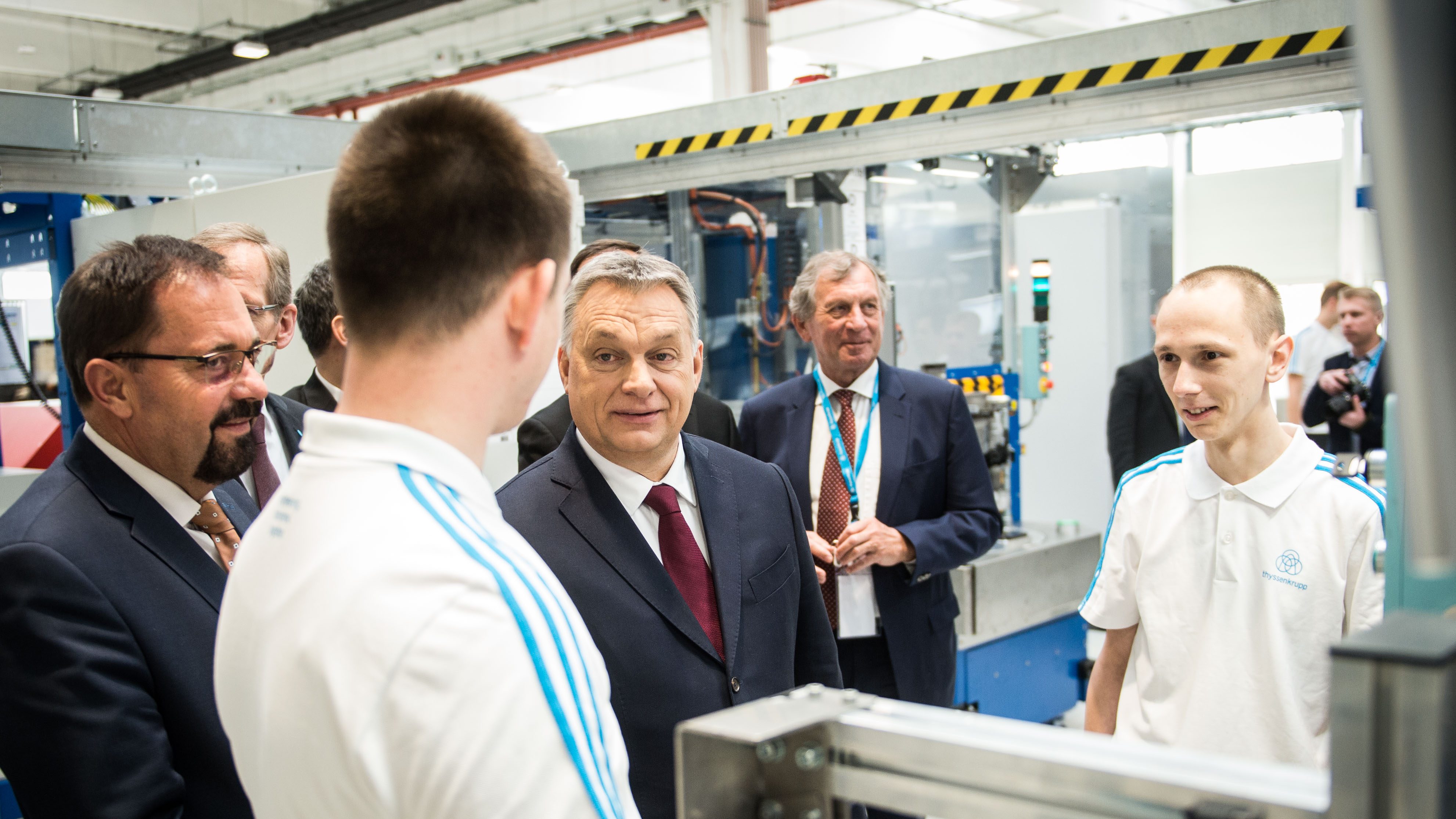
The event was also attended by Minister for National Economy Mihály Varga and India’s Ambassador to Hungary, H.E. Rahul Chhabra.
The Prime Minister highlighted the fact that the company’s director and his family also deserve thanks for taking part in the financing of dual training in Hungary. This is how they are helping to ensure the operation of high schools and university departments that provide competitive knowledge to young people, because “we don’t simply want to be good today, we also want to win the future”, he said.
“Including the new plant in Kecskemét, 32 new, large-scale production units have been opened in Hungary since 1 January 2017. The value of the investments realised during the past ten and a half months totals 511 billion forints (EUR 1.64bn). The Hungarian Government has contributed over 47 billion forints (EUR 150.5 million) towards these investment projects. The Hungarian budget contributed 7.7 billion forints (EUR 24.6 million) towards the realisation of SMP’s plant in Kecskemét”, the Prime Minister stressed.

Mr. Orbán spoke about the fact that the Hungarians are sometimes seen as old-fashioned in Europe, one of the reasons for which, in his opinion, is the fact that the family continues to be one of the most important values for the Hungarian Government. “We Hungarians believe that families that stick together and have strong and determined heads of the family at their helm are capable of outstanding performance”, he said.
“The Indian SMG Group represents a family of precisely this nature”, he said, adding: “It is an example of the fact that the family has not gone out of fashion at all and that it in fact does not represent the opposite of success, but could in fact mean precisely the road to success”.
“This is not the family’s first investment in Hungary, in view of the fact that they already have production units in Mosonszolnok and Mosonmagyaróvár. The new investment in Kecskemét is proof of the fact that the Hungarians are excellent workers, and if people set out on a joint investment with the Hungarians it could result in a joint success”, the Prime Minister said.

Mr. Orbán said it was important that the investment had been realised east of the Danube, because it makes it clear that the inherited imbalances will disappear with time and there will be a sufficient number of important investments “in both Pannonia and Hunnia”.
The Prime Minister said the investment in Kecskemét on the part of the Indian family business was also important with relation to strengthening the Hungarian economy, pointing out that Hungary’s Opening to the East policy had been the subject of debate concerning whether “we must live in a home that only had a door pointing West, or one that has windows looking both East and West”.
In his speech, the Prime Minister said all the recent foreign investment in Hungary prove that the Opening to the East is a realpolitik, because we must recognise that “Asia, and the rapidly developing countries there will play an important role in the European economy, and could also play an important role in the Hungarian economy” providing we have a suitable investment policy.
“Europe is being welcomed by a new reality”, he pointed out.
Mr. Orbán highlighted the fact that the Central European region is gaining strength, and we Hungarians are also part of this region, citing the fact that the countries of the Visegrád Group are realising 55% more trade with Germany that Germany does with France, and more that Germany does with America and China combined.

The prime Minister praised the fact that in 2012 Kecskemét became the country’s first featured automotive industry centre. He called the latest investment a good meeting point between the city and investors and pointed out that 10 thousand new jobs had been created in the city over a period of ten years.

